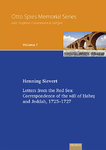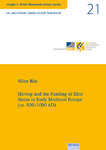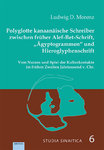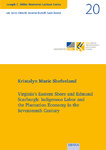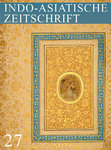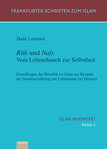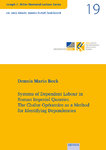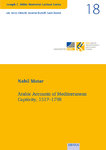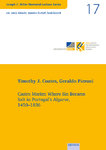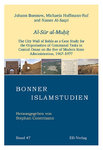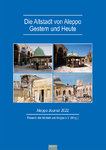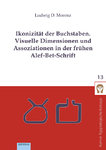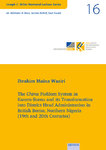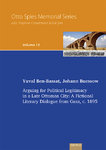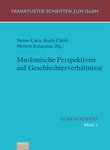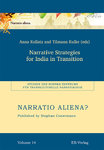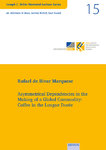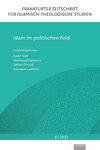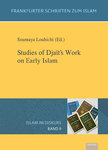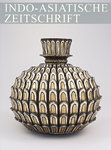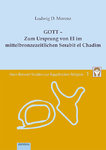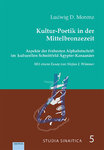- ISLAMWISSENSCHAFT
- ISLAMISCHE_STUDIEN
- JOSEPH C. MILLER MEMORIAL LECTURES SERIES
- ASIENWISSENSCHAFT
- ARCHÄOLOGIE ALS KULTURWISSENSCHAFT
- RELIGIONSWISSENSCHAFT
- RELIGIONSPÄDAGOGIK
- GESELLSCHAFT UND KIRCHE
- KIRCHE UND GEMEINDE
- GESUNDHEIT UND KRANKHEIT
- KINDERGARTENPÄDAGOGIK
- OPEN_ACCESS
- Neuerscheinungen
- In Vorbereitung
- News
- EBook
- Einzelkataloge
Categories ISLAMWISSENSCHAFT Reihe: Otto Spies Memorial Series Vol. 9: Ottoman Chronogram Poems: Formal, Factual, and Fictional Aspects
Vol. 9: Ottoman Chronogram Poems: Formal, Factual, and Fictional Aspects
Product no.: ISBN: 978-3-86893-360-4
In stock
can be shipped within 3 days
Edith Gülçin Ambros
83 pages, paperback,
14,8 x 21,0 cm, 2021
The chronogram in Ottoman literature is an encoded date, the code being the numerical value of the letters of the Arabo-Persian alphabet. It is either independent or embedded in a matrix of verses, which makes it to a “chronogram poem”. This literary genre not only conveys historical dates but also reflects personal and social habits (ego-documents). The pragmatic side of presenting chronogram poems of praise to people in power for the sake of furthering one’s own career, the fact that this was within the intellectual range of a great many people and so a relatively easy way of attempting to achieve success, the personal satisfaction of commemorating the events in one’s personal life, and the pleasure of intellectual activity were the reasons for this genre’s extreme popularity. Without doubt, these literary compositions contain information on historical, literary, and social life. However, they also often contain an element of “fictionalization”, in addition to graphic ambiguities, so that caution in interpreting them and the need for corroboration through external sources cannot be emphasized enough.
The Author
Edith Gülçin Ambros is Priv. Doz. Dr. at the Institute of Oriental Studies of the University of Vienna, where she received her PhD degree in Arabic philology (1975) and was habilitated in Turcology (1997). Apart from her PhD thesis Sieben Kapitel des Šarḥ Kitāb Sībawaihi von ar-Rummānī in Edition und Übersetzung (1979) and Arabischer Mindestwortschatz (1976) together with Arne A. Ambros, her publications are on Ottoman literature and language. Candid penstrokes: The lyrics of Me’ālī, an Ottoman poet of the 16th century (1982), Life, Love and Laughter: In Search of the Ottomans‘ Lost Poetic Language (2015), and articles like “Les recherches sur la littérature ottomane dans le monde occidental” (2013), “‘The Other’ (non-Muslim, non-Ottoman) in Ottoman literary humour” (2015), “Frivolity and Flirtation” (2016), “Tracing the changes in the representation of the Jew in Ottoman-Turkish folk theatre (from Karagöz to Ortaoyunu” (2017), and “On the Value of a Karamanlı Edition of Köroğlu as a Source of Folk Poetry” (2019) reflect her fields of research.
Customers who bought this product also bought
|
|
|
Vol. 6: The Janissaries of Damascus in the Sixteenth Century, Or, How Conquering a Province Changed
9.80 €
*
|
|
|
|
Browse this category: Reihe: Otto Spies Memorial Series



